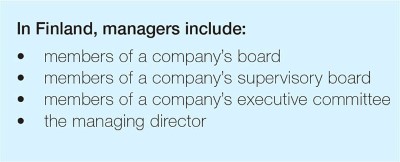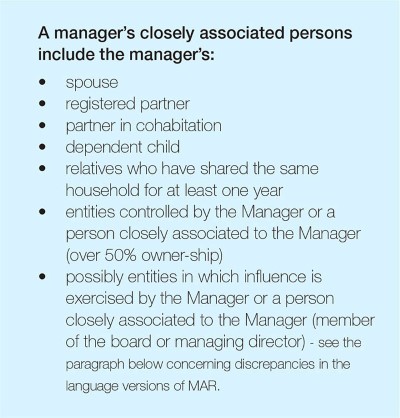In the wake of the financial crisis, the EU began regulating the financial sector through directly applicable regulations rather than locally implemented directives. The idea was to ensure rapid and uniform regulation on the borderless internal market, and it was influenced by a mistrust of Member States.
MAR, the EU Market Abuse Directive: A Step Back for Finland


Janne Lauha
Related services
Unfortunately, one-size-fits-all solutions are a bad fit for the differing situations in different Member States, and they don’t always mean progress. One example of this is the EU’s Market Abuse Regulation (596/2014), or the MAR for short, which has been a bane for listed companies and issuers of listed bonds this year.
The MAR becomes binding starting on 3 July 2016. It replaces most of the current regulations on the ongoing disclosure obligation, insider matters and market abuse under the Finnish Securities Markets Act. This is a change that has to be taken seriously: the MAR also brings with it harsher sanctions for non-compliance.
Switch from Public Insider Registers to Ongoing Disclosure
The MAR replaces the current public and company-specific insider registers with non-public insider lists, which are opened on a project- or event-specific basis on inside information possessed by a company. Starting from July, inside information has to be published as soon as possible: instead of a public registers automatically compiled from the book-entry system, in the future the publicity of trading will be implemented through stock exchange releases.
In practice, this means that whenever a ‘person discharging managerial responsibilities’ in a company or a closely associated person of such a manager makes trades in that company’s shares in excess of 5,000 euros in a year, that person must notify both the company and the Finnish Financial Supervisory Authority of the trades within three business days. The company for its part has to publish a stock exchange release within the same three-day timeframe. The above will also apply to issuers of bonds.
Taken to a negative extreme, the disclosure obligation for managers and their closely associated persons could increase the number of stock exchange releases a company has to publish many times over. At the same time, the amount of useful public information on management holdings threatens to be reduced, as publicly available online registers of holdings are replaced by a flood of individual stock exchange releases.
Major Discrepancies between Language Versions
Each language version of an EU regulation is binding as such. However, the different language versions of the MAR suffer from discrepancies. One of the most obvious differences is whether entities in which a manager or manager’s closely associated persons exercise influence are also considered that manager’s closely related persons (Article 3(1)(26)).
The English version of the MAR requires control or otherwise substantially common economic interests with the person. The Finnish and Swedish versions on the other hand encompass all entities in which the person or his/her closely associated persons discharges managerial responsibilities, such as on the board of directors. Such entities would include not just companies, but foundations, registered associations and other legal persons. This would significantly increase the number of trades requiring stock exchange releases.
The language versions are currently being assessed by the Council and Parliament, and the Finnish Financial Supervisory Authority has justifiably taken a time out until the situation is clarified. The Financial Supervisory Authority clearly stated (Finnish only) that it will not require the disclosure of trades by entities in which influence is exercised until corrections are made.
In addition, we have noted a number of other discrepancies in our close review of the language versions of the regulation:
Sloppy Regulation, Costly Consequences
Finnish companies have generally handled their insider matters in an exemplary manner. The environment they operate is a major driver of diligence. The Finnish media and public are quick to pass judgement on companies for the smallest lapses in insider matters. It seems like public pressure is forcing us to take the MAR much more seriously than in other EU countries. The discrepancies and ambiguity in the contents of the regulation are intolerable in these circumstances, especially given the fact that they cannot be corrected on the national level as would be possible through the transposition of a directive. This makes the shift from public, automatically updated insider registers in Finland to the ambiguous and contradictory MAR world particularly dramatic.












